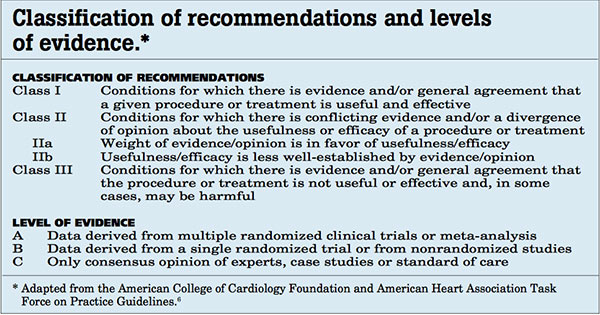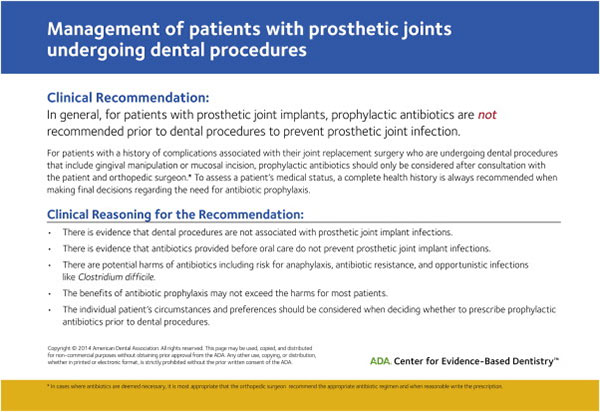Do you take an antibiotic before your dental appointment? If you do, now is a good time to discuss with your medical or dental provider if it is still necessary.
It has been widely accepted and practiced for decades that dental patients who have prosthetic joint implants, like hip and knee replacements, and patients with certain heart conditions are prescribed prophylactic antibiotics prior to dental treatment. Prophylactic antibiotics are used to prevent the spread of disease or infection from occurring. The procedures that you may need to pre-medicate for can vary from your routine hygiene visit to root canals, extractions, implant placement, and restorative work.
So why do you need to pre-medicate? According to past studies, dental procedures that involve soft-tissue manipulation or bleeding have the potential to introduce oral bacteria into the blood stream, leading to bacteremia. Blood is normally a sterile environment so the detection of bacteria in the blood is always abnormal. It has generally been accepted that bacteremia resulting from dental invasive procedures could potentially lead to the infection of prosthetic joint implant areas, and to patients with a compromised heart.
More recent scientific findings, however, indicate that there is no evidence to demonstrate a direct link between dental procedures associated bacteremia and infection of prosthetic joints. Some experts have concluded that in general, for patients with prosthetic joint implants, prophylactic antibiotics are no longer recommended prior to dental procedures to prevent prosthetic joint infection. Scientists have also found no compelling evidence that taking antibiotics prior to a dental procedure prevents infective endocarditis in patients who are at risk of developing a heart infection. They maintain that these patients’ hearts are often already exposed to bacteria from the mouth, which can enter their bloodstream during basic daily activities such as brushing or flossing. Scientists now argue that infective endocarditis is more likely to occur as a result of these everyday activities than from a dental procedure.
Recent scientific literature discusses the risks versus the benefits resulting from the widespread use of antibiotics and consequently, attitudes regarding the indications and contra-indications for antibiotic usage are changing. The overprescribing and overuse of oral antibiotics is now considered to be a significant public health threat. Providers, their patients, and the public need to be aware of widespread antibiotic resistance that is ever increasing in today’s day and age.
In addition to the fear of antibiotic resistance, there is also concern that people who are given multiple oral doses for antibiotic prophylaxis are at higher risk of experiencing drug reactions from penicillin-type drugs. Of all allergens, penicillin is the most frequent medication-related cause of anaphylaxis in humans, and its use is the cause of approximately 75% of fatal anaphylaxis cases in the U.S. annually.
Instituting these new evidence-based changes into clinical practice will likely lead to challenges across disciplines for providers and their patients. Successful implementation, however, will empower medical and dental providers to use their clinical judgment on the potential risks, benefits, and harms of antibiotic prophylactics.
If you have questions regarding taking antibiotics before your dental appointment please feel free to contact us. You can also contact your medical professional to find out if taking antibiotics for your dental visits is necessary. Visit our dental clinic in Sterling to get state of the art, sedation and dental implant services.



